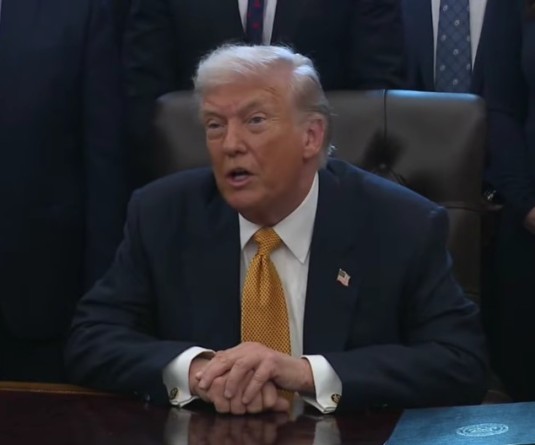
CAIRO, February 16 (Reuters): The military hoped tens of thousands of Egyptians would heed its appeal to get back to work on Wednesday and abandon the strikes and protests that flared after the downfall of Hosni Mubarak offered new freedoms.
Facing a rash of pent-up labor demands from groups ranging from bank staff and tour guides to policemen and steelworkers, the military has urged people not to disrupt further an economy damaged by the 18-day uprising against Mubarak.
"Mubarak has left, but the problems are still the same if not more," said John Sfakianakis, economist at Banque Saudi Fransi. "At this stage I would be more optimistic than last week given that you don't have hundreds of thousands on the streets."
Youth activists behind protests which toppled Mubarak asked for a meeting with the Higher Military Council, which has promised a swift handover to democracy and civilian rule, but had yet to receive a reply, a leading activist said.
The opposition want more steps from the military, including the release of political prisoners and lifting of emergency laws.
A committee, set up to amend the constitution within 10 days as a prelude to parliamentary and presidential elections in six months, is also expected to meet as the military dismantles the apparatus used to maintain Mubarak's 30-year rule. It has already dissolved parliament and suspended the constitution.
With uprisings in Egypt and Tunisia sending shockwaves around the Middle East, hundreds of people, angry at the arrest of a rights campaigner, clashed with police and government supporters overnight in the Libyan city of Benghazi. There have also been clashes in Iran, Bahrain and Yemen.
There was a frenzy of rumor about the health of Mubarak, 82, who is holed up at his residence in the Red Sea resort of Sharm el-Sheikh after flying from his Cairo palace. In last-ditch addresses, Mubarak said he wanted to die in Egypt.
One Saudi official in Riyadh said: "He is not dead but is not doing well at all and refuses to leave. Basically, he has given up and wants to die in Sharm." The official added that Saudi Arabia had offered to be his host.
Egyptian pro-democracy leaders plan a big "Victory March" on Friday to celebrate the revolution -- and perhaps remind the military of the power of the street.
REVOLUTIONARY ARDOUR
Revolutionary ardor has inspired workers to cite a series of grievances. What unites them is a new sense of being able to speak out in the post-Mubarak era.
Protests, sit-ins and strikes have occurred at state-owned institutions across Egypt, including the stock exchange, textile and steel firms, media organisations, the postal service, railways, the Culture Ministry and the Health Ministry.
Banks across Egypt were shut on Wednesday after being closed on Monday because of labor rows. Tuesday was a national holiday to mark the birthday of the Prophet Mohammad so for many sectors Wednesday was the first work day since the military's appeal.
Egypt's generals, who played an important role in the anti-Mubarak revolt by making no effort to crush it, are asserting control and trying to return life to normal.
The Islamist Muslim Brotherhood, which did not play a leading role in the revolution but has been Egypt's best-organized opposition group for many years, said it wanted the military to carry out further steps, such as freeing political prisoners, immediately.
Some secular leaders fret that racing into presidential and parliamentary elections in a nation where Mubarak suppressed most opposition activity for 30 years may hand an edge to the well-organized Muslim Brotherhood.
In Tahrir Square, scene of clashes between protesters and police during the revolt, traffic flowed on Wednesday and some of the army tanks and armored vehicles had been pulled back, although military amour remained in other Cairo locations.
U.S. President Barack Obama condemned Iran's crackdown on unrest, inspired by Egypt's uprising, and urged Middle Eastern states to take heed of their peoples' aspirations for democracy.
Facing a rash of pent-up labor demands from groups ranging from bank staff and tour guides to policemen and steelworkers, the military has urged people not to disrupt further an economy damaged by the 18-day uprising against Mubarak.
"Mubarak has left, but the problems are still the same if not more," said John Sfakianakis, economist at Banque Saudi Fransi. "At this stage I would be more optimistic than last week given that you don't have hundreds of thousands on the streets."
Youth activists behind protests which toppled Mubarak asked for a meeting with the Higher Military Council, which has promised a swift handover to democracy and civilian rule, but had yet to receive a reply, a leading activist said.
The opposition want more steps from the military, including the release of political prisoners and lifting of emergency laws.
A committee, set up to amend the constitution within 10 days as a prelude to parliamentary and presidential elections in six months, is also expected to meet as the military dismantles the apparatus used to maintain Mubarak's 30-year rule. It has already dissolved parliament and suspended the constitution.
With uprisings in Egypt and Tunisia sending shockwaves around the Middle East, hundreds of people, angry at the arrest of a rights campaigner, clashed with police and government supporters overnight in the Libyan city of Benghazi. There have also been clashes in Iran, Bahrain and Yemen.
There was a frenzy of rumor about the health of Mubarak, 82, who is holed up at his residence in the Red Sea resort of Sharm el-Sheikh after flying from his Cairo palace. In last-ditch addresses, Mubarak said he wanted to die in Egypt.
One Saudi official in Riyadh said: "He is not dead but is not doing well at all and refuses to leave. Basically, he has given up and wants to die in Sharm." The official added that Saudi Arabia had offered to be his host.
Egyptian pro-democracy leaders plan a big "Victory March" on Friday to celebrate the revolution -- and perhaps remind the military of the power of the street.
REVOLUTIONARY ARDOUR
Revolutionary ardor has inspired workers to cite a series of grievances. What unites them is a new sense of being able to speak out in the post-Mubarak era.
Protests, sit-ins and strikes have occurred at state-owned institutions across Egypt, including the stock exchange, textile and steel firms, media organisations, the postal service, railways, the Culture Ministry and the Health Ministry.
Banks across Egypt were shut on Wednesday after being closed on Monday because of labor rows. Tuesday was a national holiday to mark the birthday of the Prophet Mohammad so for many sectors Wednesday was the first work day since the military's appeal.
Egypt's generals, who played an important role in the anti-Mubarak revolt by making no effort to crush it, are asserting control and trying to return life to normal.
The Islamist Muslim Brotherhood, which did not play a leading role in the revolution but has been Egypt's best-organized opposition group for many years, said it wanted the military to carry out further steps, such as freeing political prisoners, immediately.
Some secular leaders fret that racing into presidential and parliamentary elections in a nation where Mubarak suppressed most opposition activity for 30 years may hand an edge to the well-organized Muslim Brotherhood.
In Tahrir Square, scene of clashes between protesters and police during the revolt, traffic flowed on Wednesday and some of the army tanks and armored vehicles had been pulled back, although military amour remained in other Cairo locations.
U.S. President Barack Obama condemned Iran's crackdown on unrest, inspired by Egypt's uprising, and urged Middle Eastern states to take heed of their peoples' aspirations for democracy.






